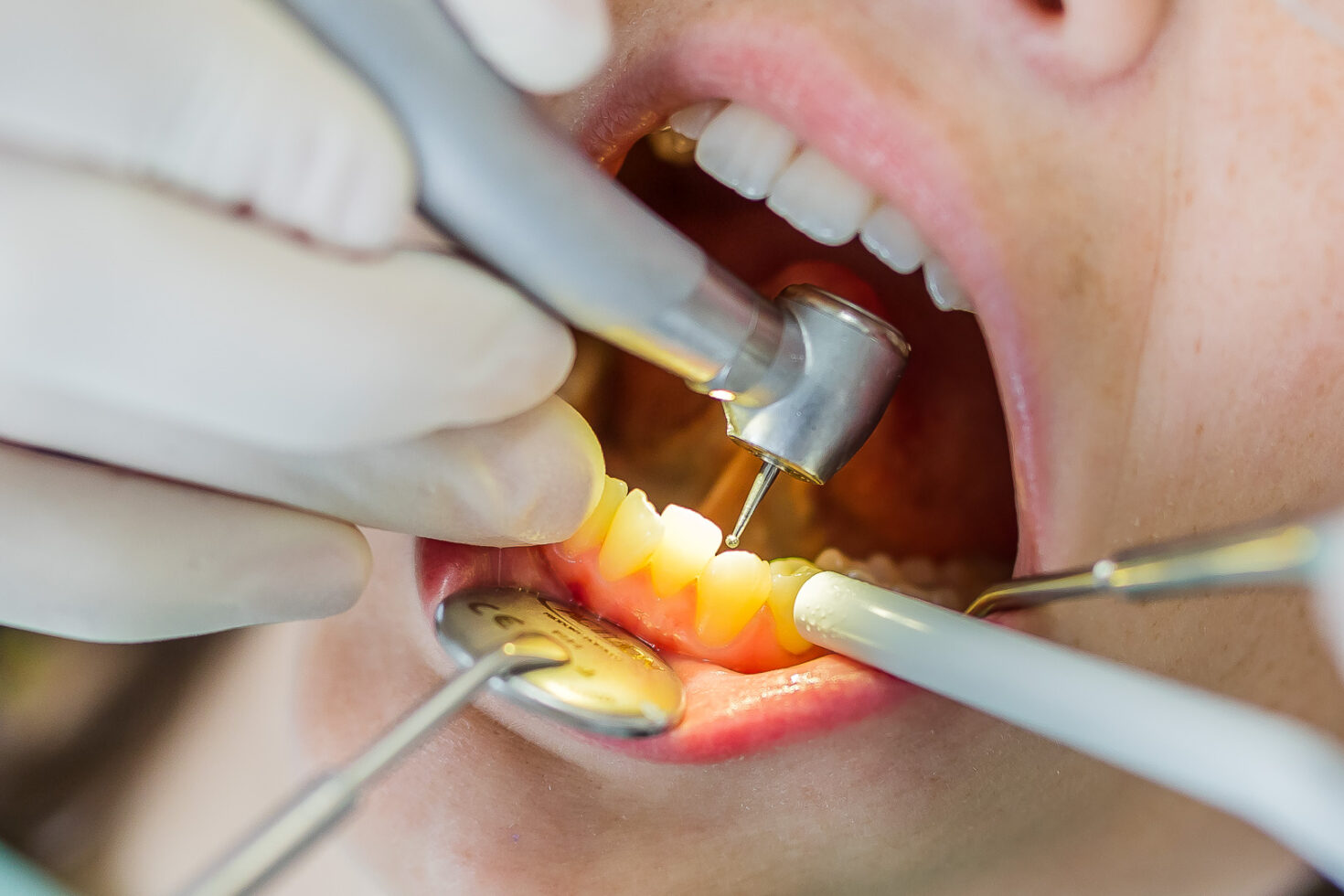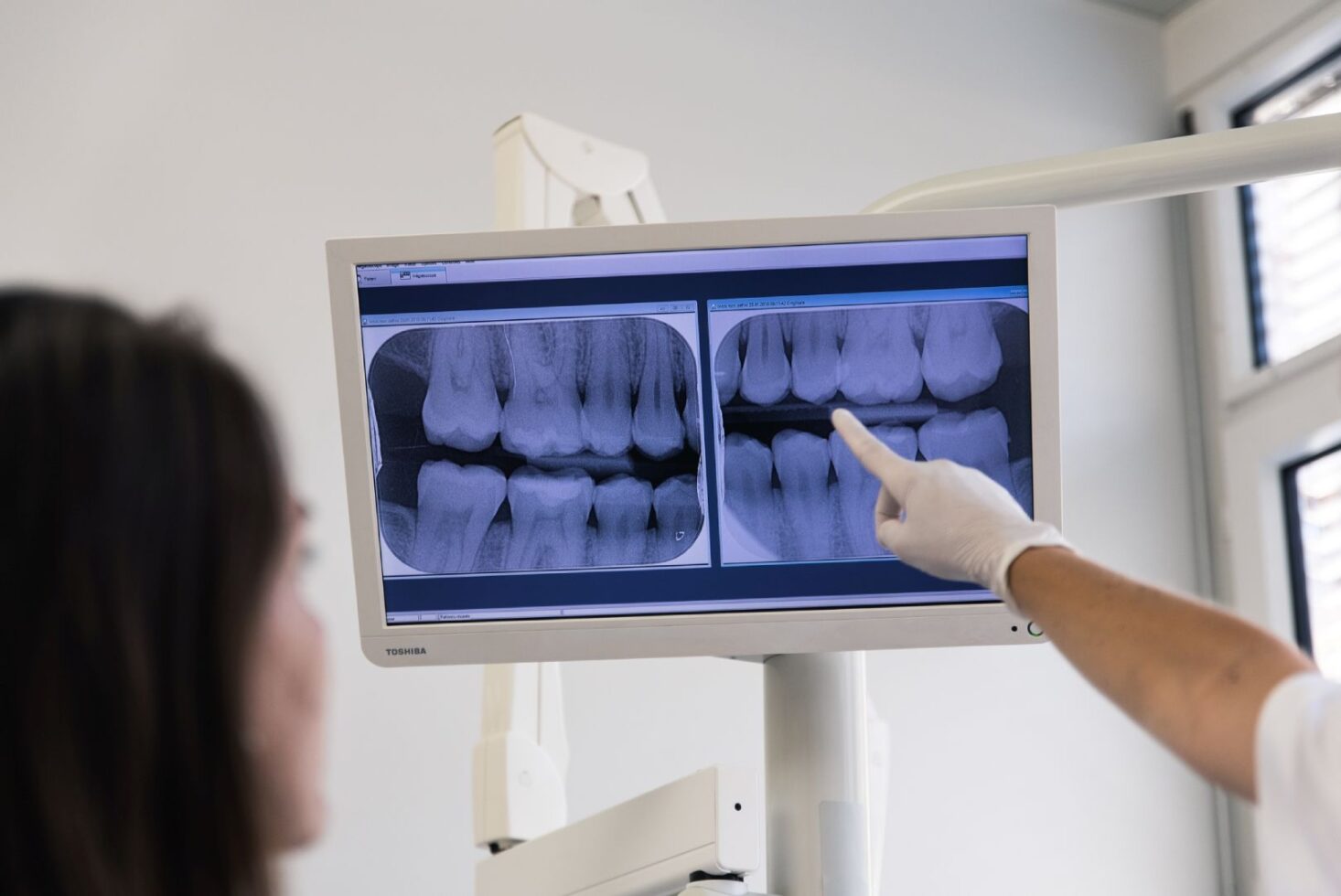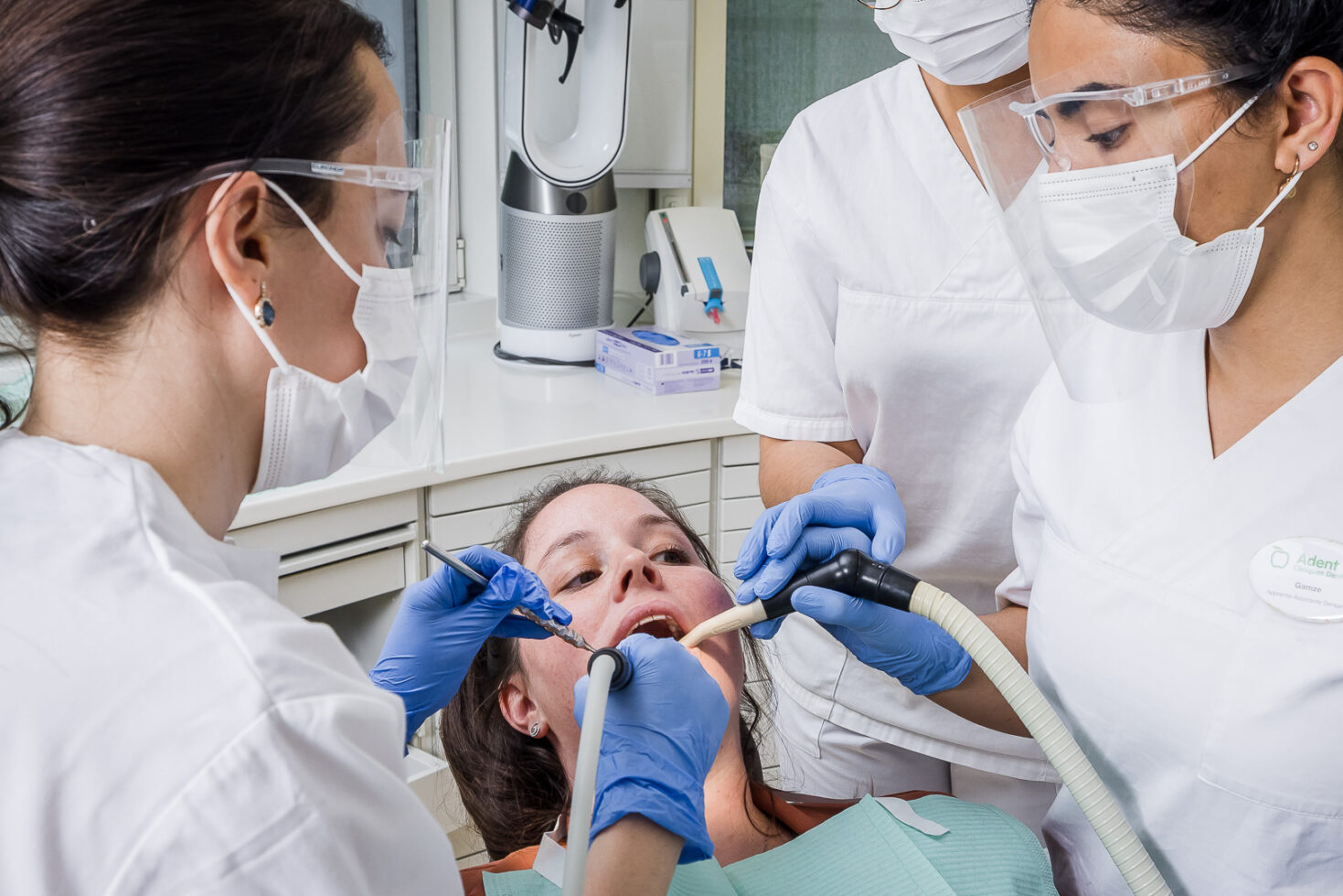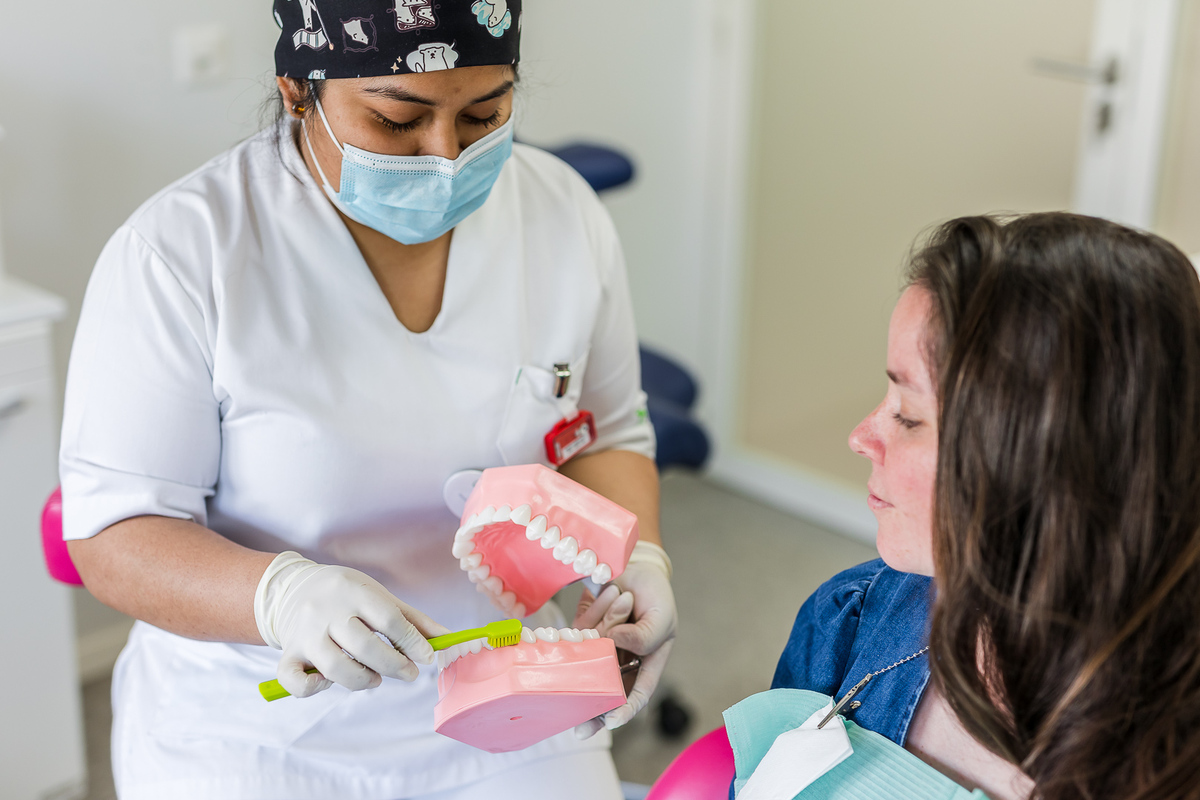Oral health is key to well-being.
Various studies show the links between inflammation in the mouth and general health problems. More than 600 species of bacteria live in our mouths. Some can enter the bloodstream and cause damage: cardiovascular problems, glycemia-diabetes, respiratory diseases, joint inflammation, risk of premature delivery.
Dental check-ups are part of basic medical care. Regular dental hygiene and periodic check-ups are the keys to good dental health and a healthy smile. Smiling extends life expectancy, reduces stress and has a positive impact on others. A healthy smile gives you confidence and well-being in your daily professional and personal life.
Regular dental check-ups help to detect any problems that could affect the health of your teeth and gums.
We recommend an annual visit to detect, monitor and treat ailments.
Adent Dental Clinics bring together all current dental treatments for adults and children under one roof:
- root treatments
- fillings for broken teeth
- wisdom teeth extraction
- treatment of cavities
- recovery from gum problems (gingivitis, gingival recession, periodontitis, abscesses, etc.)
- orthodontics
- cosmetic procedures
Our dental hygienists can help you set up a personalized prevention program and recommend a wide range of cleaning aids (brushes, toothpicks, floss, etc.).
Cavities: prevention is better than cure
The main causes of cavities are a sugary diet, inadequate oral care and a defective immune system. If decay is left untreated, the cavity expands and reaches the dentin (the layer beneath the enamel) or the nerve of the tooth. Pain may be felt, particularly with hot, cold or sweet foods. The larger the cavity, the greater the pain. Dental X-rays taken at regular check-ups help identify signs of early decay.
How to treat cavities?
Caring for tooth decay is a very common form of general dentistry. Cavities on the surface of the tooth enamel are treated with simple tooth-colored fillings. In the case of deeper decay, root canal treatment and a dental crown may be necessary. Tooth extraction is only necessary when the decay is very advanced and affects the deep tissues of the tooth. We can, of course, anesthetize adults and children alike.

Root treatment
Root canal treatment involves removing the infected, damaged or dead nerve from your tooth. The heart of the tooth contains nerves and blood vessels. They enable the tooth to develop. Bacteria that enter your tooth through cavities, cracks or damaged fillings lead to abscess formation. The abscess is caused by infection of the dental pulp. In this case, the pulp must be removed.
The advantage of root canal treatment is that you can keep your tooth rather than extracting it. By preserving your natural tooth, you prevent other teeth from losing their alignment.
How does a root canal work?
Your dentist administers a local anaesthetic and places an insulating membrane around the tooth. He makes a small opening in the tooth to access the canal and the damaged pulp (heart of the tooth). Using precision instruments, he removes the pulp, cleans and widens the canal. The dentist fills the canal and closes the tooth with a temporary or permanent filling. The tooth is no longer sensitive to heat or cold, but retains its properties. A crown and post are usually required to extend the life of the tooth.

FAQ – Root canal treatment
How does root canal treatment work?
The tooth is first anesthetized and isolated from the oral cavity using a rubber dam.
The tooth is opened with a burr and the root canal entrances shown, the length of the root canal is measured electrometrically, inflamed and dead tissue is completely removed, all root canals are disinfected with disinfectant solutions and filled with the plastic material.
How long does a root canal treatment last?
Depending on the number of tooth roots, root canal treatment takes between one and two hours. Thanks to modern treatment methods, we can usually perform the planned root canal treatment in a single session, with only very complicated cases requiring several sessions.
When is root canal treatment necessary?
In case of inflammation or necrosis of the nerve of the tooth (which can be accompanied by severe pain or be completely painless), in case of deeper decay already observed down to the nerve of the tooth (usually accompanied by one or a few pains), after an accident where the tooth has been pulled out.
Is it possible to repeat a root canal treatment that was carried out a long time ago without success?
Of course, we can repeat root canal treatment in most cases and achieve high therapeutic results using today’s modern treatment methods.
Wisdom teeth extraction
Wisdom teeth extraction is part of oral surgery as well as general dentistry. It’s a surgical procedure that’s regularly performed and mastered at Adent Group dental clinics.
Wisdom teeth usually grow in between the ages of 16 and 24. They can also be absent. Regularly, they need to be removed because they are not growing in the right direction or remain “locked” under the gum.
Due to a lack of space in the jaw or poor positioning, wisdom teeth can cause problems: infections of surrounding tissues and neighboring teeth, caries that is difficult to treat, or displacement of neighboring teeth.
Do you recommend removing my wisdom teeth?
To determine the location and number of wisdom teeth, your dentist will take a panoramic X-ray of your mouth. This will give him all the information he needs to draw up a treatment plan for the extraction of one or more wisdom teeth.

Inflammation and infections
The supporting tissues that surround your teeth are precious: take care of them!
Periodontitis (loosening of the teeth) is a disease that affects the supporting tissues that surround and support your teeth. Destruction of these tissues leads to mobility and tooth loss. There are several stages in the evolution of gum disease.
The initial stage is gingivitis. It affects only the gums, and is characterized by inflammation: the gums bleed, are red and swollen.
Periodontal disease is the leading cause of tooth loss in adults. Nearly 75% of all adults suffer some degree of gum disease at some point in their lives. However, the disease can also affect young people.

Gums at risk: act fast
What happens if the gums become inflamed?
If gingivitis is left untreated, the inflammation spreads and reaches the bone. The bone surrounds your teeth and holds them in place on the jawbone. If nothing is done, the bone, ligaments and all the tissues that support and surround your teeth will gradually be destroyed. This tissue destruction leads to the loss of one or more teeth. This is called periodontitis.
Tooth loosening (periodontitis) is a disease that affects the tissues that support the teeth. It must be managed by specialists known as periodontologists. Collaboration between patient, periodontologist and dental hygienist is essential to optimize healing. To guarantee you the best possible care, we bring all these professions together in each of our Adent Dental Clinics.

Do you have any questions?
Contact your nearest Adent Dental Clinic.
Find my clinic
